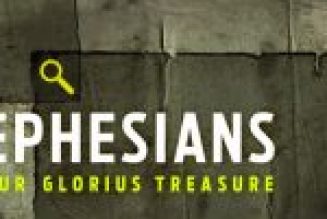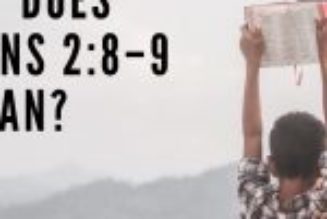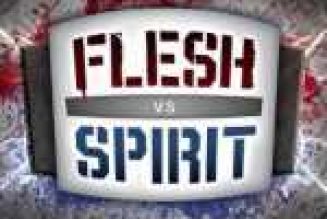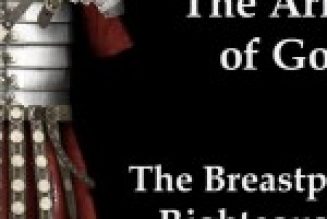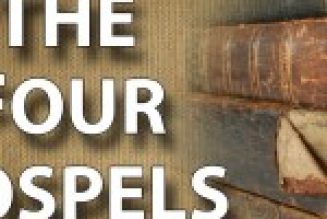 I have a book on hell coming out in June, titled What is Hell? You can pre-order the Kindle version on Amazon. Between now and then, I will be focusing my podcasts studies on some of the content from the book. We will look at the eight key terms that are often equated with hell, and about a dozen key passages that are thought to teach about hell.
I have a book on hell coming out in June, titled What is Hell? You can pre-order the Kindle version on Amazon. Between now and then, I will be focusing my podcasts studies on some of the content from the book. We will look at the eight key terms that are often equated with hell, and about a dozen key passages that are thought to teach about hell.
If you want to learn the truth about hell, and what the Bible actually teaches about hell, make sure you get a copy of my book, What is Hell?
In this study, we will consider Matthew 18:8-9 to see whether or not the reference to hell in this text refers to everlasting torment in fiery flames.
What is the meaning of “hell” in Matthew 18:8-9?
Let us begin by looking at the text of Matthew 18:8-9.
“If your hand or foot causes you to sin, cut it off and cast it from you. It is better for you to enter into life lame or maimed rather than having two hands or two feet, to be cast into the everlasting fire. And if your eye causes you to sin, pluck it out and cast it from you. It is better for you to enter into life with one eye, rather than having two eyes, to be cast into hell fire.”
The teachings of Jesus in Matthew 18 are very similar to Matthew 5:22, 29. But we are discussing this text of Matthew 18:8-9 because it contains extra details which help us understand both passages.
Jesus speaks of hell and describes it as being a place of everlasting fire.
The word for hell is gehenna, which, as we learned in a previous study, was a literal place outside the walls of Jerusalem. It was also known as the Valley of Hinnom and was a horrifying place of worms, fire, decay, and death.
Gehenna was a garbage heap that had been set on fire to consume its contents and cover the stench of rotting refuse and corpses. The everlasting fire, therefore, refers to the fire of Gehenna that burned day and night, seemingly forever and ever.
The nature of city garbage dumps, however, is that they attract the poor and the sick.
 In that day (as in our own day), those who were stricken by poverty or sickness would visit the garbage dump in an attempt to find something to eat or sell.
In that day (as in our own day), those who were stricken by poverty or sickness would visit the garbage dump in an attempt to find something to eat or sell.
For example, in the days of Jesus, scavenging for food and clothing in the garbage dump was often the only way that lepers could survive. It is the lepers that often frequented Gehenna which led Jesus to teach what He does here in Matthew 18:8-9.
While leprosy itself does not cause someone to lose their eyes, ears, nose, or limbs, it was not uncommon for people with advanced cases of leprosy to lose body parts or appendages due to infection, amputation, or accident.
If someone has no feeling in their feet, it is possible for them to accidentally put their foot too close to the fire at night while sleeping, thereby causing it to burn. If they are burned bad enough, they might need to amputate their foot.
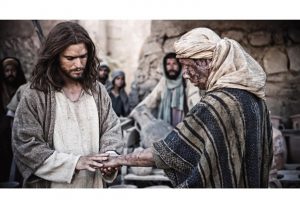 This is the situation Jesus has in mind. Some people, when they first saw a hint of leprosy on their hand or foot, would rather cut off their hand or foot and go through life maimed, than be officially diagnosed with leprosy and be sent to live in Gehenna, where the fire burned day and night.
This is the situation Jesus has in mind. Some people, when they first saw a hint of leprosy on their hand or foot, would rather cut off their hand or foot and go through life maimed, than be officially diagnosed with leprosy and be sent to live in Gehenna, where the fire burned day and night.
Similarly, if someone’s eye is injured, and it begins to putrefy or rot, it is better to pluck it out than to leave it in and allow the corruption to spread to the rest of the body. If this were to happen, the person would eventually be sent to Gehenna. It is better to lose an eye than to spend your last days there.
So Jesus is NOT warning people about everlasting torture in hell…
When this cultural context is understood, we see that Jesus is not warning people that if they sin in this life, they will end up in a fiery torture chamber in the next.
Instead, Jesus is saying that sin leads to damaging and destructive consequences in this life.
If we want to avoid those consequences, some drastic steps are sometimes needed.
A person who finds themselves infected with the rot of addiction or the decay of bad influences should cut those places or people out of their life so that the disease does not spread and cause greater damage to themselves or to others whom they love.
Matthew 18:8-9 is not a warning about the afterlife
So Matthew 18:8-9 is not a warning about the afterlife, but an instruction about preserving your life here and now.
The surrounding context gives several applications of exactly how to do this.
Jesus teaches that His disciples should cut pride out of their life if they want to experience the kingdom of God (Matthew 18:1-5).
He provides instructions for how to rescue a lost sheep (Matthew 18:10-14) by going to them with one or two others.
But if they do not heed or listen, then they should be cut out of your life as well (Matthew 18:15-20).
 Jesus also speaks about the importance of forgiving others as we have been forgiven (Matthew 18:21-35) so that we give up our need to be repaid for wrongs done against us.
Jesus also speaks about the importance of forgiving others as we have been forgiven (Matthew 18:21-35) so that we give up our need to be repaid for wrongs done against us.
The point of the entire context is that it is better to go through life (this life!) without pride, certain friends, and a defense of justice than to maintain such things but to lose yourself, your family, your friends, and your finances in the process. This is what Jesus is teaching.
Matthew 18:8-9 is not a warning about everlasting punishment in hell, but is rather a warning about the experience of a hellish life here and now.Yes, Jesus mentions “everlasting fire” in the context. To understand this term, we will study Matthew 25:41 next week…
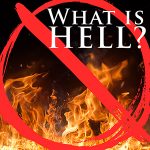 Do have more questions about hell? Are you afraid of going to hell? Do want to know what the Bible teaches about hell? Take my course “What is Hell?” to learn the truth about hell and how to avoid hell.This course costs $297, but when you join the Discipleship group, you can to take the entire course for free.
Do have more questions about hell? Are you afraid of going to hell? Do want to know what the Bible teaches about hell? Take my course “What is Hell?” to learn the truth about hell and how to avoid hell.This course costs $297, but when you join the Discipleship group, you can to take the entire course for free.



